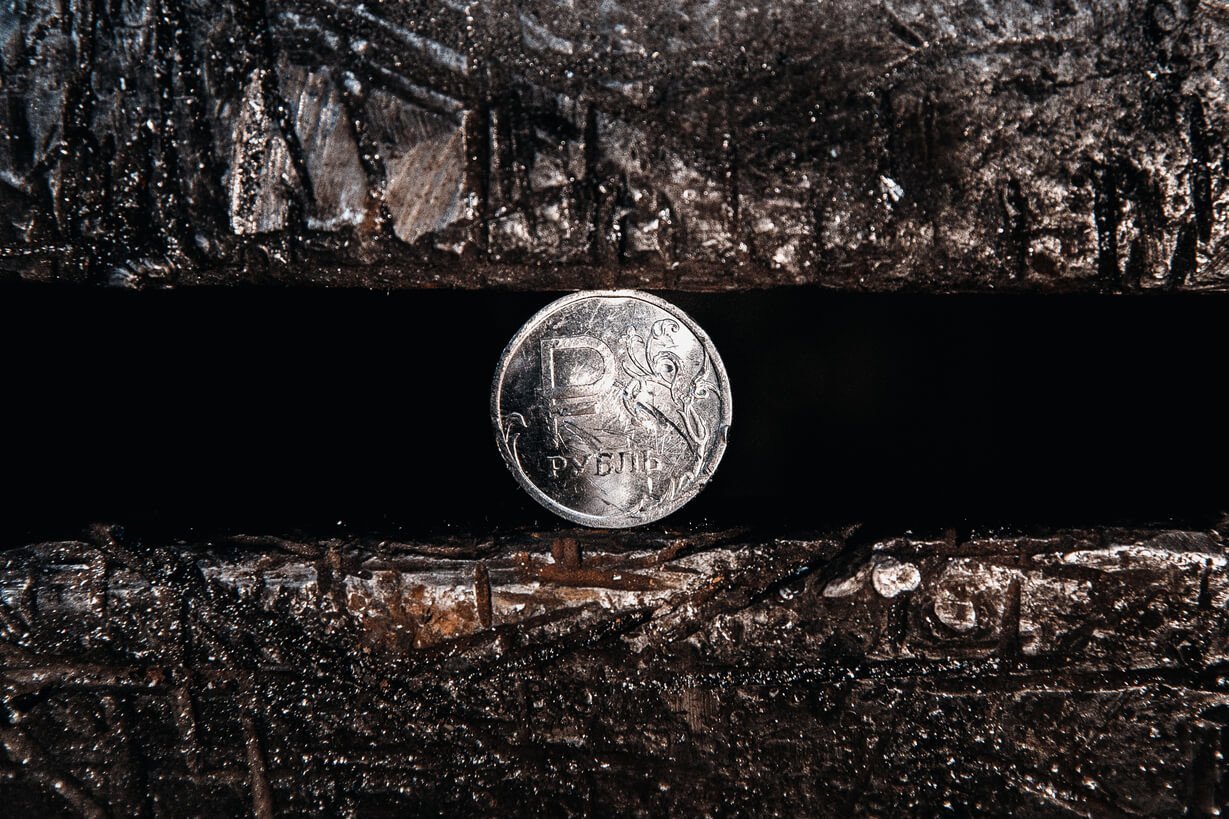US Hits Russian Crypto Exchange with Sanctions, Russian Central Bank Afraid That Crypto Will Replace Ruble

The United States has hit the crypto exchange Garantex with sanctions, claiming that it has “willfully disregarded” anti-money laundering and countering the financing of terrorism (AML, CFT) obligations and “allowed” its “systems to be abused by illicit actors.” A joint Washington-Berlin effort has also closed down darkweb servers in Germany – while the Russian Central Bank says it is still opposed to crypto adoption.
In an official release, the American Department of the Treasury’s Office of Foreign Assets Control (OFAC) wrote that analysis of “known Garantex transactions shows that over USD 100 million in transactions are associated with illicit actors and darknet markets.”
The exchange has previously worked with the Russian oligarch Alexander Lebedev, and was until very recently registered with the Estonian regulator.
However, OFAC noted:
“In February 2022, Garantex lost its license to provide virtual currency services after supervision by Estonia’s Financial Intelligence Unit revealed critical AML/CFT deficiencies and found connections between Garantex and wallets used for criminal activity.”
This figure, OFAC claimed, included “nearly USD 6 million” from the Russian ransomware “gang Conti.”
It also included “approximately USD 2.6 million from Hydra Market,” the agency added. And Hydra – called “the world’s largest and most prominent darknet market” in the release was the subject of a joint operation also involving German authorities.
OFAC wrote that the German Federal Criminal Police had “shut down Hydra servers in Germany and seized USD 25 million worth of bitcoin (BTC).”
Hydra has also been sanctioned.
The Treasury Secretary Janet Yellen was quoted as stating:
“Our actions send a message today to criminals that you cannot hide on the darknet or their forums, and you cannot hide in Russia or anywhere else in the world. In coordination with allies and partners, like Germany and Estonia, we will continue to disrupt these networks.”
Meanwhile, on Twitter, the Secretary of State Anthony Blinken wrote that that the United States had sanctioned “the world’s largest darknet market for Russian speakers” in Hydra – and that the move “demonstrates our commitment to continue disrupting ransomware infrastructure and actors.”
Per CoinPaprika data, Garantex has a reported 24-hour volume of just over USD 11 million and its official headquarters are officially listed as Estonia – although the firm is known to have a number of Russia-based offices. It offers ruble and hryvnia pairings.
Meanwhile, the Central Bank is still refusing to budge on its hardline stance on crypto adoption. Calls for Moscow to legalize crypto and grant industrial miners business rights have grown increasingly loud since the start of the year – and these have escalated as a result of the war in Ukraine.
A broad consensus of political figures backs regulation of the sector, but the bank prefers to talk of banning both crypto trading and mining.
Per RIA Novosti, the bank is sticking to its guns, despite a direct challenge from the United Russia party MP Anton Gorelkin. The latter is also the Deputy Chairman of the State Duma’s Committee on Information Policy.
The media outlet quoted the First Deputy Governor of the Central Bank Ksenia Yudaeva as responding to the MP that a “mass acquisition of cryptocurrencies by citizens,” would inevitably lead to “their use as a means of payment.”
Yudaeva explained:
“In this case, the ruble – as the monetary unit of the Russian Federation – will be replaced by cryptocurrencies. The black market will expand, and tax revenues will fall. This will reduce the stability of the financial sector.”
She added that seeking to adopt crypto “into the financial system” would result in “the creation of a parallel financial system that does not obey the rules that apply to financial organizations in Russia.”
Gorelkin had written to the bank after the latest round of meetings of the crypto working group – a joint government-Central Bank-private sector group. Last month, the MP claimed that 12% of Russians have had experience with crypto “transactions” in one form or another.
____
Learn more:
– Russia Sanctions May Lead More Countries To Consider CBDCs, Ex-Central Banker Says
– Ex-Regulator Tells US Senators That Crypto Can ‘Empower and Protect the Innocent’
– ‘Big Holes’ Undermine Russia Sanctions – And It’s Not Crypto (Psst! It’s Traditional Politics & Finance)
– Senior Russian MP Suggests Trading Gas and Oil for Bitcoin
– Elliptic Claims Breakthrough in Search for Russian Crypto Sanctions Evaders
– Russia Has ‘All the Needed Resources’ to Create Its Own Crypto Infrastructure, an MP Claims




